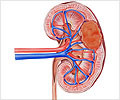Lenvatinib Medication Information
Learn everything you need to know about Lenvatinib-pronunciation, uses, dosage guidelines, indications, and when to take or avoid it.
Get up-to-date information on side effects, precautions, warnings, and proper storage to ensure safe usage.
Explore Lenvatinib brand names commonly used in India and internationally, along with detailed pricing information. Consult your healthcare provider for tailored medical advice.
Generic Name : LenvatinibBrand Names or Trade Names of Lenvatinib
India :
Lenvima
Why is Lenvatinib Prescribed? (Indications)
Lenvatinib belongs to a group of medications called kinase inhibitors. It is prescribed for the treatment of advanced thyroid cancer which has spread to the distant parts of the body and cannot be treated with radioactive iodine. It is also used in the treatment of advanced renal cell carcinoma, a type of kidney cancer along with another drug everolimus after another cancer treatment. It inhibits certain tyrosine kinases and thereby controls the cancer.When should Lenvatinib not be taken? (Contraindications)
Lenvatinib should be avoided in patients who are allergic to the drug, with high blood pressure, severe kidney or liver problems, heart problems or cardiac failure or during pregnancy and breastfeeding.What is the dosage of Lenvatinib?
The recommended oral dose of lenvatinib is 24mg to be taken once daily. In case of patients with severe kidney or liver problems, a reduced dose of 10 mg for kidney cancer and 14mg for thyroid cancer should be taken once daily.How should Lenvatinib be taken?
Lenvatinib comes in the form of a capsule to be taken orally by mouth either with or without food. Follow the instructions and dose as directed by the physician. Since it can cause vomiting, it is usually taken along with an anti-emetic medication.What are the warnings and precautions for Lenvatinib?
• Do not take the drug if you are planning to become pregnant as the drug is capable of decreasing the fertility in men and women.• Blood pressure should be monitored regularly while taking the drug as it can cause hypertension.
• Discontinue the drug if there is liver failure or nephrotic syndrome.
• Do not use the drug if there is any gastrointestinal perforation or life threatening fistula.
• Discontinue the drug if there is any signs of neurologic symptoms which may indicate reversible posterior leukoencephalopathy syndrome (RPLS). RPLS is characterized by symptoms of headache, seizures, confusion and loss of vision.
• Do not use the drug if there is any bleeding problem or heart problems like irregular heartbeats and heart failure.
What are the side effects of Lenvatinib?
General: Fever, fatigue, joint and muscle pain, hair lossRespiratory: Shortness of breath, cough, nose bleeding (epistaxis)
Skin: Rashes, redness, itching or peeling of the skin
Digestive Tract: Nausea, decreased appetite, mouth sores, stomach pain, constipation or diarrhea, liver problems resulting in jaundice and light-colored stools, perforation in the digestive tract.
Cardiovascular system: Heart problems, swelling of the feet, high blood pressure, formation of blood clots, bleeding, and altered electrical activity of the heart (called QT prolongation)
Central Nervous System: Seizures, headache, changes in vision due to a condition called reversible posterior leukoencephalopathy syndrome (RPLS).
Endocrine System: Changes in thyroid stimulating hormone level.
Fluid and Electrolyte Abnormalities: Dehydration, altered levels of potassium, calcium and magnesium.
Female Reproductive System: Heavy menstrual bleeding.
Urinary System: Increased protein in urine, urine infection, kidney failure.







